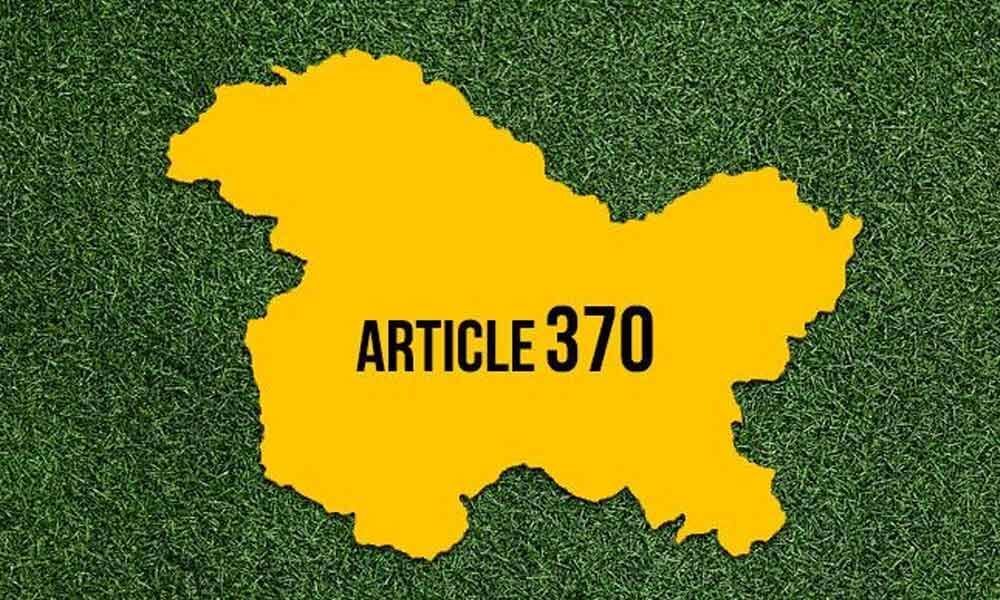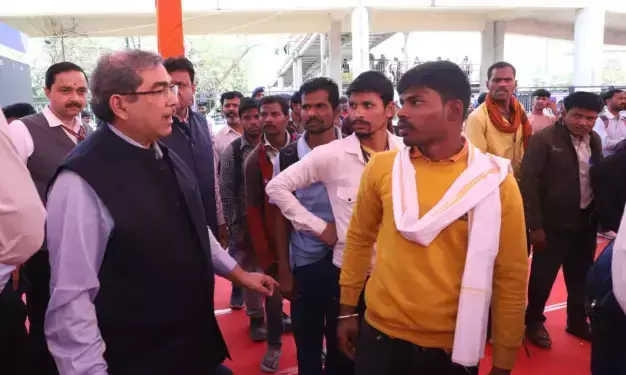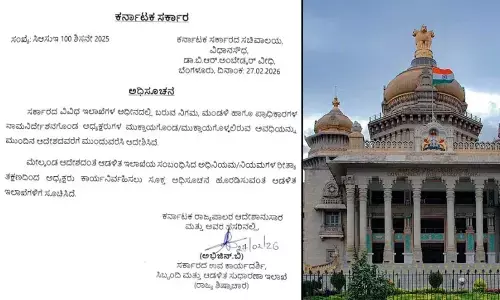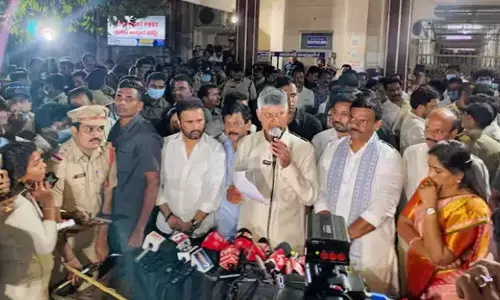Abrogation of Article 370: A legal fiction

It is not just Article 370, the President’s Order has also amended Article 367, changing the substantive character of an important provision besides abolishing the entire Constitution of Jammu & Kashmir.
It is not just Article 370, the President's Order has also amended Article 367, changing the substantive character of an important provision besides abolishing the entire Constitution of Jammu & Kashmir.
Article 370 is meant for preserving autonomy for Jammu & Kashmir, leaving decision making power regarding relationship with the Centre to the State's Constituent Assembly.
It is a serious limitation on the authority of Executive and Parliament to pass such orders/legislation for the State of J&K. Under Articles 370(1)(b) and 370(1)(d), the power of Parliament is limited to areas that were listed in the instrument of accession.
As per Art 370(3) the recommendation of the State's Constituent Assembly is required before the President modifies or makes a declaration that the Article will be inoperative.
The Presidential Order claims that it was promulgated 'in exercise of powers conferred by clause (1) of Article 370, the President with concurrence of the government of the State of Jammu & Kashmir'. The concurrence of J&K is a legal fiction generated by amendment to Article 367, to equate an absent legislative Assembly with Constituent Assembly.
What cannot be amended even with two thirds of majority in Parliament and ratification by fifty percent Assemblies was done by the Presidential Order.
President's order C O 272 has amended Article 367, which is basically an interpretation clause of the Constitution of India. After this Presidential Amendment, Article 367 declares that "the expression 'Constituent Assembly of the State…' in Article 370 (3) shall be read to mean 'Legislative Assembly of the State'. If this interpretation is taken further forward the Parliament today may be considered as Constituent Assembly!
Not having Constituent Assembly for Jammu & Kashmir is a major impediment in changing the provisions in Article 370. The Constituent Assembly is specifically aimed at drafting the Constitution for J&K. After approving the Constitution, the CA has disbanded itself in 1957.
Before dissolving itself, the CA has finalised some changes and facilitated even the abrogation of Article 370. But it is subject to recommendation of Constituent Assembly 0f J&K. This means if the Union wants to alter the constitutional relationship between the J&K and rest of India, they should first constitute a Constituent Assembly for the State in accordance with norms and then look for its recommendation.
This is not a mere procedural aspect but a substantive requirement for altering the 'Constitution' of a State. The Legislative Assembly of a State or Parliament at Centre is basically representative in character, which is endowed with the power of amending the Constitution. It must act within the sphere and scope determined by the Constitution of the nation. It can amend but cannot rewrite the entire Constitution or abrogate it completely.
The Constituent Assembly alone can have required sovereign authority to draft a new constitution in place of the earlier. The difference between legislative house and Constituent Assembly is that the first has to exercise its powers as per the Constitution, while the latter develops the Constitution. Both are not same though appears to exercise legislative functions.
Mr Madhav Khosla, a Junior Fellow at the Harvard Society of Fellows explained this, saying: "Indeed, it is precisely this distinction that is at the heart of India's basic structure doctrine that prevents certain constitutional amendments on the ground that Parliament, which exercises representative authority, is limited and cannot create a new constitution and thereby exercise sovereign authority".
Expansion of Legal fiction
This executive order notified through President's office has created huge legal fiction with following components:
The Legislative Assembly of J&K is deemed to be the Constituent Assembly of J&K.
Consultation with Legislative Assembly is deemed to be the Consultation with Constituent Assembly.
Since the Legislative Assembly of J&K is dissolved, the Governor of J&K is deemed to be the representative of Legislative Assembly of J&K (which is deemed to be its Constituent Assembly).
Hence, the consultation with or recommendation of (if any) is deemed to be the consent of the Constituent Assembly to abrogate the Constitution of J&K and also deemed to be its recommendation to bring about the changes in Article 370 to make entire Constitution of India applicable to state of Jammu & Kashmir.
Another major extension of this so-called logic of legal fiction is that the requirement mandated by Article 3 that altering the shape of a State should be done only after referring the Bill for views of the State Assembly, has been presumed to have been done, because the Governor was consulted.
Going back further, the support of the BJP to the PDP to form the government after elections resulting in a hung House, later withdrawal of support to the PDF-led government and imposition of President's Rule after dissolution of State Assembly have created the present situation of absence of people's representation.
When there is no Constituent Assembly of J&K, and Legislative Assembly, whom did the President consult for changing Article 370? Can a Governor assume authority of Legislative Assembly and get into shoes of Constituent Assembly to remove the entire Constitution of Jammu and Kashmir?
When the Governor represent the State?
The Governor, being an appointee of the Centre as a formal head of the State, who reports to the Centre under the Constitutional scheme, about State, hardly represents the State.
Especially during the Centre's rule, he is the temporary ruler till representative government is constituted. During the President's rule, Parliament will legislate for that State as a stop-gap arrangement to meet the exigencies of the budget.
But Parliament cannot replace the State Assembly for all aspects of governance. How can a Governor, being a Centre's appointee, amend the constitutional structure of the J&K, assuming to be the Constituent Assembly?
Making a dead Assembly equal to Constituent Assembly through an executive order is unthinkable. It is surprising that such a major flaw is passing on as a historic change.
This order usurps the power of Parliament, as the Constitutional provisions of the Amendment were not followed besides grabbing the power of Constituent Assembly of J&K and the Legislative Assembly.
In amending Article 367 also Union has drawn its authority from Article 370(1). This is an amendment of substantial provision of the Constitution itself, which could be done only under article 368 requiring two-thirds majority of Parliament present and voting besides the ratification by 50 per cent of State Assemblies.
The State of Jammu & Kashmir has started off as a State with special status through accession in capacity of independent State to the present annexation as Union Territory without involving the people of Jammu & Kashmir or their representatives.
Next elections if held as promised, will be for an Assembly of UT without much of powers, neither the special status nor the statehood. The elected representatives will have no power to pass even single piece of legislation without approval of Lieutenant Governor and Administrator.
(The writer is former Central Information Commissioner and Professor of Law, at Bennett University, Greater Noida)










